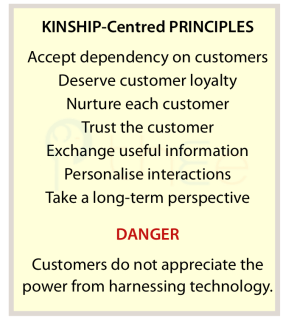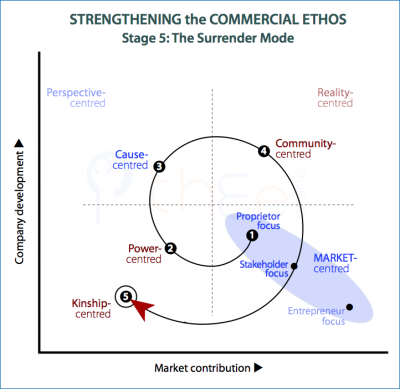Stage-5: The Surrender Mode
Injunction: Bond and be Bound!
The label «» aims to help a business understand that it must see and feel itself dependent on its customers—something that will be anathema to Power-centred top executives.
Businesses may activate the Kinship-centred system by focusing on customer needs and wishes so as to deserve loyalty, or by focusing on providing an output in a way that engenders maximal confidence and trust.

|

|
If customers are treated well according to Kinship-centred principles, they will become almost unable to conceive of living or working without the business, its products and services.
Surrender Works Both Ways
Surrender entails more than posting an annual holiday card thanking customers for their support. Success now depends on such things as:
- Accepting dependence on the customer.
- Trusting the customer.
- Sharing information with the customer.
- Forming a partnership with the customer.
- Nurturing or giving special attention to the customer.
- Providing products and services for the customer at no charge.
- Personalizing interaction with the customer.
- Taking a long-term perspective on the business relationship.
![]() Q: Is product-centric? or market-centric? Or both?
Q: Is product-centric? or market-centric? Or both?
Developmental Stimulus
Bonding with customers requires moving with market changes and enabling timely incorporation of new ideas. But radical change, however beneficial for the customer, is problematic for a company and must be pursued strategically, rather than opportunistically. This calls for a new ethos—one that is ready for change, complexity and uncertainty: in short, .
-
Proceed to Stage-6: The Innovative Mode.
Originally posted: July 2009